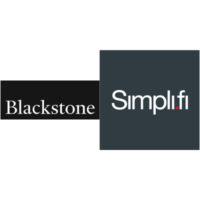Blackstone Backs Simpli.fi; Tapcart Raises USD$50m
by Mathew Broughton on 29th Jun 2021 in News


In today's ExchangeWire daily news digest: Blackstone backs Simpli.fi; Tapcart raises USD$50m (£36m); and ShipBob secures USD$200m (£144m).
Blackstone backs Simpli.fi
US private equity firm Blackstone has acquired a majority stake in programmatic advertising and agency workflow software provider Simpli.fi, at a valuation of USD$1.5bn (£1.1bn). Fellow PE investor GTCR, which acquired its holdings in Simpli.fi in 2017, will retain a significant stake in the Texas-based firm, with both holding equal representation on the board of directors. As well as continuing the rampant consolidation in the advertising technology industry as a whole, the funding marks the latest significant involvement in the space from Blackstone, following its USD$1.3bn (£936m) purchase of International Data Group (IDG) earlier this month; its USD$400m (£288m) investment in Liftoff at the close of last year; and the acquisition of Vungle for USD$750m (£540m) in July 2019. Simpli.fi itself has been active in M&A through 2021, having acquired agency ERP developer The Advantage Software Company in January for an undisclosed sum.
Commenting on the funding, Sachin Bavishi, Managing Director, Blackstone, wrote, "Simpli.fi’s highly differentiated technology platform and superior customer service have made it a clear leader in its space. Digital advertising is a high-conviction investment theme at Blackstone and Simpli.fi sits at the intersection of multiple attractive tailwinds, including the continued shift in local media spend to programmatic digital and CTV. We are very excited to partner with the management team and GTCR to further accelerate the Company’s growth."
Tapcart raises USD$50m (£36m)

Mobile e-commerce platform Tapcart has announced that it has raised USD$50m (£36m) in a Series B funding round led by Left Lane Capital and supported by a host of investors including SignalFire, Greycroft, ActOne Ventures, and Amplfiy LA. The platform is used in partnership with Shopify, which also invested in the latest financing round, allowing brands using Shopify to launch mobile storefronts. The investment will be used to expand Tapcat's product offerings, with plans to launch marketing automation and developer SDK solutions, and for recruitment purposes.
In a statement, Vinny Pujji, Managing Partner, Left Lane Capital, commented, "Paid marketing channels have become ferociously competitive for brands, while end consumers have grown numb to incessant promotion emails. Tapcart provides e-commerce marketers the opportunity to engage their most valuable customers by owning a piece of real-estate on their mobile phones - this is further bolstered with push-notification campaigns. This technology has been attempted many times over the past decade. Tapcart is the first business we've seen achieve this vision in a reasonably priced, easy-to-use and still robust platform."
ShipBob secures USD$200m (£144m)

In further e-commerce news, ShipBob, a global logistics platform catering to direct-to-consumer (DTC) brands has secured USD$200m (£144m) in Series E financing at a unicorn valuation in excess of USD$1bn (£712m). The round was led by Bain Capital Ventures and supported by Hyde Park Angels; Hyde Park Venture Partners; Menlo Ventures; Silicon Valley Bank; and SoftBank. The investment will purportedly be used by the Chicago-based firm to support market expansion and for R&D efforts, with a focus on software and robotics.
In an interview with TechCrunch, ShipBob CEO Dhruv Saxena commented, "Due to Covid, e-commerce penetration in the US got pulled forward by 5-7 years and while some of it will revert back as the economy opens up, it is still higher than the pre-COVID levels across nearly all verticals. Many consumers who were forced to adapt to online buying are continuing to buy things online. For example, older demographics bought online for the first time and will continue to do so, while younger demographics who bought a considerable percentage of their goods online already, increased that percentage while the size of their buying power increased as well."
E-CommerceInvestmentMobileProgrammatic








Follow ExchangeWire